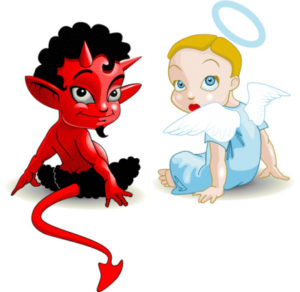Why Can’t I Control My Anger?
“Why can’t I control my anger” is a desperate cry I hear from so many people who pick up the phone and desperately want help in turning that switch off.
“Why can’t I control my anger when the slightest little thing irritates me?”
“Why can’t I control my anger when it’s not a big deal?”
“Why can’t I control my anger when I know my partner didn’t mean to hurt me?”
“Why can’t I control my anger when I see my loved one flinching and scared?”
“Why can’t I control my anger when I hate myself for being like my dad?”
“Why can’t I control my anger when I become loud and abusive like my parents?”
Andre a 40-year-old director for a global charity hated the part of him that suddenly exploded after weeks and months of keeping his cool. He regretted it when he responded to minor irritants with built up resentment and bitterness in loud harsh tones. What bothered him particularly was that he had no warning of his impending outburst. By the time he was aware of the hateful thing he had just done it was too late.
“Why can’t I control my anger?” he’d say getting furious with his lack of control.
He was smart, conscientious, well respected and admired all over the world when he traveled to promote the charity he worked for. Yet, his wife telling him he forgot something on the shopping list could send him into an instant rage, snapping back with a snarky remark about being browbeaten for making a simple mistake. He was a gentle and generous man, patiently removing bureaucratic obstacles that got in the way of his charity reaching the many needy communities they served all over the world. But when it came to family, his goodness wasn’t seen or acknowledged – only his errors were noted and chastised.
“Why can’t I control my anger?” – Because there is a war going on inside you
As early as he could remember Andre feared his father’s loud penetrating voice that blasted at him and his mother. His father was abusive interacting with Andre’s mother – putting the boy in a terrible position. Should he protect his mother, or should he take care of his feelings and try and defend himself against his father’s vitriol? For a little boy who couldn’t possibly make that choice, he froze, building a shield around his delicate psyche – until the next unpredictable piercing tongue lashing from his emotionally volatile father.
No wonder Andre was so upset when he behaved like his father after hearing a criticism from his wife. The last thing he wanted was to feel like he inherited his father’s destructive anger – and despite all his efforts to keep his cool, to avoid letting minor irritations from getting to him and to understand where his wife was coming from, he was still subject to the uncontrolled anger that burst forth and shamed him a few seconds later. So, one side of his internal war was to beat this ‘dad’ part of him to death, bury it and be redeemed for ever.
But if Andre didn’t want to be like his dad, he had to replace that dad with someone he did want to emulate – and that person came in the shape of his father-in-law who was the complete opposite of his dad. His father-in-law’s life revolved around service to others with no complaints. He did everything for his family and they came to see him as a river of care that never ran dry. Andre found in his father-in-law an ideal that could obliterate the experience of his father. Here was the epitome of everything that he wished he’d had when he was a child and wanted to be now. If only he could have had his wife’s dad, then he wouldn’t have had to feel responsible for not protecting his mother and guilty for the bad life she had.
Trying to emulate his father-in-law formed the other side of the war that tortured Andre.
“Why can’t I control my anger?” – because the war inside prevents you from finding your own authenticity and being comfortable in your own skin.
Fear and loathing about being angry like his dad made Andre want to avoid any anger at all. He made excuses for his wife’s critical stance, and mother’s dependence on him, turning himself into the bad guy.
In his moment-to-moment experience Andre filtered out any reaction of annoyance that was normal and healthy. That shield he used as a child to withstand his father’s unbearable and unjustified rage was now coming in handy to keep his natural feelings of mild anger and irritation out of his awareness. Everyone of these millions of reactions built up like layers of magma heating up until an unfair expectation and judgment from his wife set off the volcano inside him. Since he had blotted out all awareness of the emotions that let to the eruption, he exploded with spewing hate filled lava – disgusted with himself for being like his dad, and ashamed with himself for not being like his father-in-law.
“Why can’t I control my anger?” – “Why can’t I control my anger?” Because you are caught between trying to avoid being a brute and wishing to be a saint.
Andre was not in tune with himself and had no idea what was normal or healthy in terms of sensing and managing his emotions. He was stuck with an unrealistic vision of himself that eschewed being human. Having no anger is a denial of humanity, while attempting to be a saint is equally inhuman and therefore impossible. Andre was not successful at neither end of the spectrum, and felt like a failure – the one thing that he ascribed to his father – and having found himself in the same place – failed at being the husband he wanted to be to his wife and unable to be his father-in-law to compensate his mother for what she suffered.
“Why can’t I control my anger?” – because you refuse to be in touch with it in its healthy form and act on it appropriately.
When he minimized the bubbles of anger in daily life such as dealing with bad drivers on the road, or not getting a response from a colleague when he reached out on a time sensitive matter – then that shield from childhood came back and prevented him from being able to monitor himself. The detachment protected him in the moment but built up and blew back in a big way, threatening his sense of self and filing him with self-disgust.
“Why can’t I control my anger?” – because you aren’t taking responsibility for your natural emotions and putting the onus on others for taking care of your sensitivity.
As a child Andre couldn’t speak about his overwhelm when his father engaged in his frequent merciless tirades. His mother was traumatized and couldn’t help her son process his tumult – in fact he had to protect her from their abuser. He never learned to be aware of the natural ebb and flow of his feelings and now suffers from a lack of internal tools to tolerate his normal emotions. His attempt to be a copy of his father in law meant that once again he focused outside himself– leaving his own emotional life in the lurch!
“Why can’t I control my anger?” – because you want to skip the feelings and do it by magic.
Andre didn’t want to feel his anger no matter even at its lowest level. He didn’t want to stir up his rage against his father that reminded him of wanting to kill his father when he was growing up. That would make him as bad if not worse than his dad. Nor did he want to feel his emotional needs, because that would stir up hurt and resentment at his wife and mother. He was afraid that if allowed it, those feelings would make him abusive like his dad. The only feelings he approved of were those of being like his saintly father-in-law who took on all responsibility for the well-being of his loved ones. Unfortunately emulating his father-in-law didn’t fulfill Andre’s needs for understanding, care and comfort and to be loved as he was rather than because he was saint like!
“How can I control my anger?” – by getting acquainted with it and regulating it with other emotions as a healthy well-balanced person does.
Despite Andre’s wish to manage his anger and be a good person, he found anger management therapy difficult to tolerate. He didn’t want to feel the anger in his sessions and for a long while the meetings were dry and frustrating for him. After quite some time he was amenable to observations about his body language that reflected a range of emotions including anger. It was the beginning move for Andre feeling safe enough to notice his body signals of fear, anger, anxiety and hurt. Next, he noticed them more and more often in his daily life. Familiarizing himself with his normal feelings and monitoring their ebb and flow enabled him to reduce shame and self-disgust. He learned to tell his wife and mother when he had reached his limit, was stressed and couldn’t respond like a robot – taking responsibility for himself so that he didn’t get to a point of losing control. At last he was able to “speak up and speak back” – helping the frozen child inside him feel safe to embrace his personal authority and power.
Copyright, Jeanette Raymond, Ph.D.2019
You might also like:
Anger Makes You Swing From One Type of Depression to Another
Managing Hostile Anger in Relationships
Three Ways to Harness Your Anger, Hate and Frustration to Get What you Want






